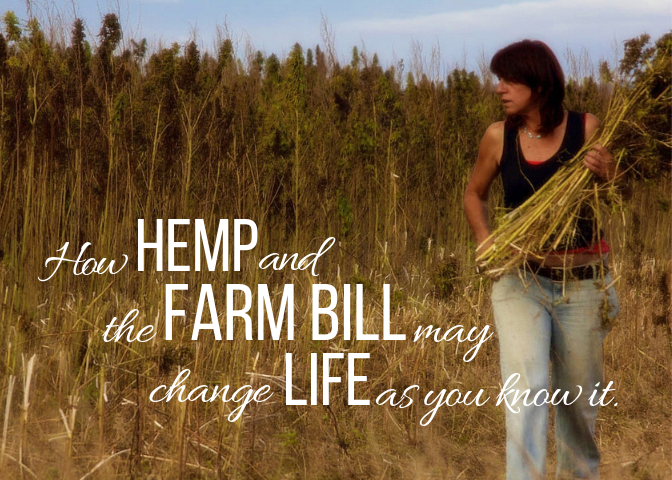Hemp is a plant that has long been associated with cannabis, though they have several differences. Hemp is a versatile plant that has many uses across different Industries, and it has been a part of the United States for a long time.
In fact, it is believed that hemp was on American soil long before it was colonized, but the use of hemp wasn’t officially recorded in America until 1932, when it was mandated that all farmers grow flax and hemp seed; hemp was a large part of their industry and was used in rope and boat sales. Hemp was often used as currency in the early years of the country and was an important commodity.
In 1937, the passing of the Marijuana Tax Act placed restrictions on hemp farming, and the association between hemp and cannabis became more prevalent. When the US government introduced the Controlled Substance Act in 1970 to regulate cannabis, it pulled the definition of hemp from the Marijuana Tax Act of 1937.
In 2014, the Farm Bill created a framework where states could grow and research hemp, and in 2018 the Farm Bill expanded. It removed hemp as a controlled substance, and commercial hemp production was made legal throughout the nation. This hemp bill had a large effect on the cultivation, commercialization, and possession of hemp.
Cultivation
The introduction of the 2018 Farm Bill had different impacts on the cultivation of hemp.
Farmers
The classification of hemp changed, so now it is a commodity crop, which comes with new privileges; farmers cultivating hemp are now able to get crop insurance for hemp, and they can now participate in federal grants and certification programs. If a stage does not have its own program for hemp cultivation, hemp growers can still legally apply for licenses from the Department of Agriculture (USDA).
There is a clause within the 2018 Farm Bill that is sometimes referred to as the ‘felony ban,’ and it plays a part in determining who can grow hemp. Under this clause, any individual who has a drug-related felony conviction that is less than ten years old cannot be a producer in the hemp industry unless they participated in a legal hemp program under the 2014 Farm Bill. So not only did this version of the bill give farmers more rights and opportunities, but it also limited who could be a farmer.
Growing
From state to state, there are different regulations on whether hemp can be grown and who can grow it. Federally, as long as the individual meets specific requirements, anyone can grow hemp; this can range from companies to individual people. Industrial hemp is largely grown to contribute to the textile industry as well as many others, which increases the demand for hemp.
State-Specific Regulations
With the Farm Bill, the USDA created a federal set of guidelines and regulations for the growth of hemp, but the bill also gave state governments the power to create their own plans for growers in their individual states to follow. These plans must be approved by the USDA. It also gives the opportunity for Native American tribal governments to create unique plans for their tribes.
The plans that states and tribal governments create must contain:
- Testing procedures for THC concentration in hemp
- Details on how the locations where hemp is grown are to be monitored
- Plans for the disposal of plants and products that violate federal guidelines
- What actions will be taken when federal hemp laws are violated
Commercialization
The 2018 Farm Bill also had an impact on commerce, directly impacting the hemp industry. The transportation of hemp and hemp products across state lines is legal. States cannot interfere with the interstate shipment and movement of hemp, regardless of the substance’s legality in that state. As long as the hemp being transported meets all of the federal guidelines, it is legal.
But the freedom that is now given to interstate commerce also affects other companies. Before, credit card companies were hesitant with hemp dispensaries and hemp manufacturers, which is why most dispensaries dealt in cash. But now that the sale and manufacture of hemp products are legal, credit card, e-commerce, and shipping companies can now perform business in the hemp industry without government retribution.
Possessing
Because hemp is now a federally legal substance, it is no longer federally illegal to be in possession of hemp as long as the hemp meets the federal guidelines and contains less than the required 0.3% THC. You can find hemp products online and in dispensaries.
However, it is important to recognize that hemp is not legal in all states, and one must still follow each state’s regulation. One must still follow the regulations on hemp.
